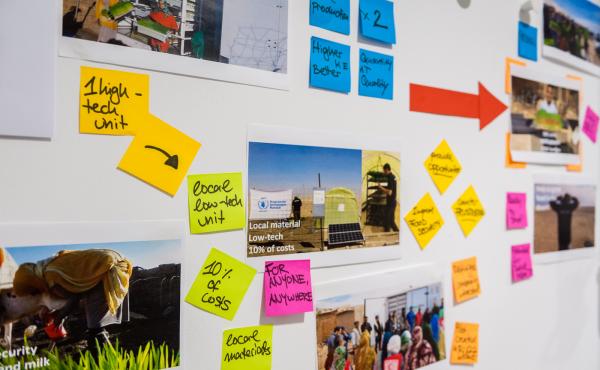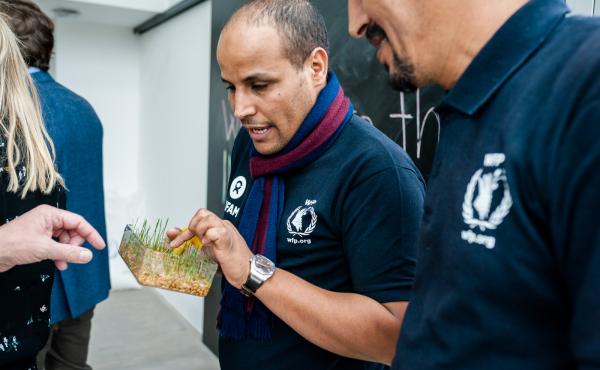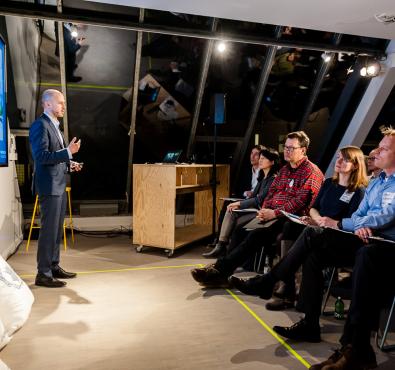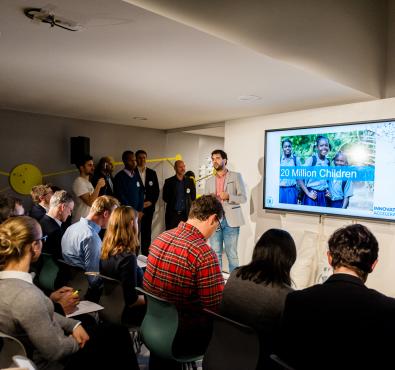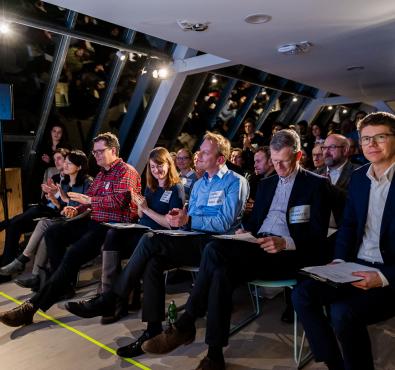Launched in 2016, the Hydro-Sahrawi project uses low-tech recycled shipping containers that are specially designed to quickly grow green animal fodder in the harsh desert environment. With the help of solar power, barley shoots are grown in a partially controlled environment in 7-day cycles, with one unit alone providing enough fodder for up to 30 animals per day. The fodder is used to improve the Sahrawi’s livestock milk and meat production, and ultimately improve the food security of the reliant community.
Taleb, an agriculturalist with Oxfam and whom works alongside WFP on the project, explained how the low cost and locally built hydroponics containers “...hands power to the people we serve to strengthen their own destiny”. As well as expressing her delight at the award, Soazic Dupuy, Programme Officer with WFP Algeria, outlined what’s next for the project. “Now we have the model in place, we want to test the best way to grow the number of people who use it, be that through household management, local cooperatives or by supporting local entrepreneurs and businesses.”
WFP’s Director of Innovation and Change Management, Robert Opp, also congratulated the team. In highlighting the team’s progress to date, he hoped that the pitch night would present new opportunities for donors and supporters to help scale innovation projects at WFP, such as the one in Algeria. You can read more about the project here.



